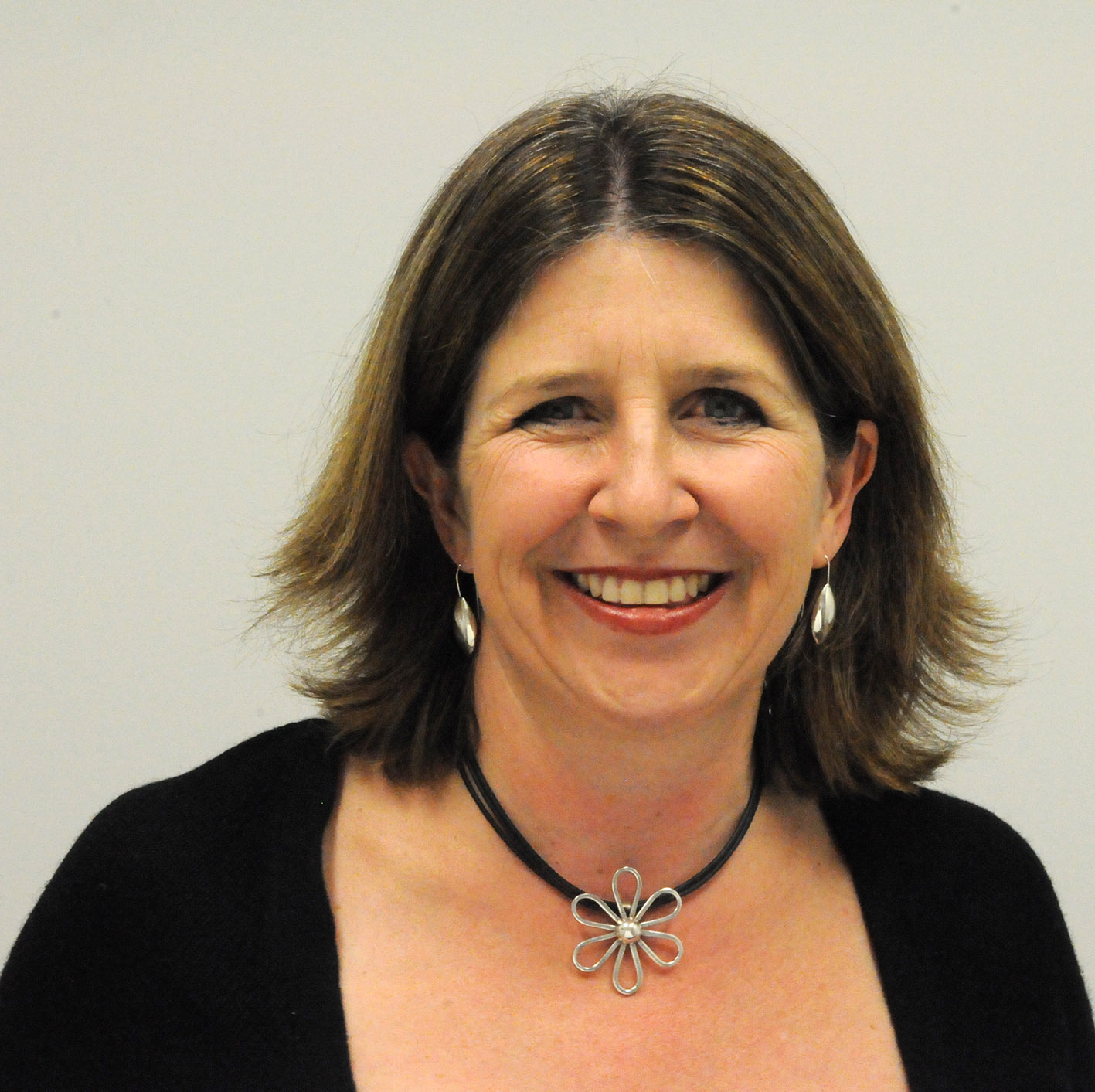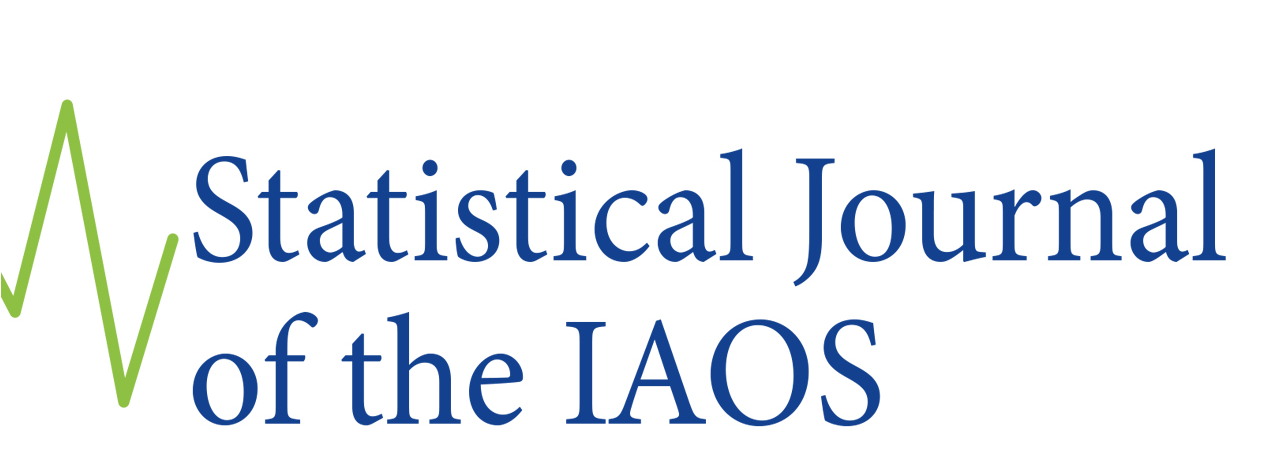

“We can really draw strength from one another and look at the best practice or look at international practices, learning from each other on how best to do it in our own country.”
By Katherine M. Condon, Ph.D., Interview Editor - SJIAOS
Gemma Van Halderen leads the Australian Bureau of Statistics’ (ABS) Strategy and Partnerships Division. This Division leads the transformation of ABS’s statistical programs, and strategies for data sharing, data integration and microdata access. In this position, Gemma shapes strategy, change and transformation of ABS’ business, policies and engagement with partners including Commonwealth and State/Territory governments. In addition, she is interested in improving the range, accessibility and visibility of statistics and data for research, analysis and public policy
Gemma holds a Bachelor of Science with Honors from the Australian National University. Over the last 20 years, she has held several senior executive positions in the Australian public sector. She is an Accredited Statistician. She is an elected member of the International Statistics Institute and a member of the Australian Institute of Management, as well as an ACT finalist in the 2013 Telstra Business Women’s Awards.
In the interview, we talked about her many experiences within the field of official statistics, what drew her to becoming a statistician, as well as some of her greatest satisfactions during her official career so far. The interview concluded with a request that Gemma bestow some words of wisdom to students preparing for working in the world of official statistics.
The telephone interview with Gemma Van Halderen was done by Katherine Condon on May 17, 2016. Gemma is one of the emphasis editors for SJIAOS. She is the editor of this special issue which has the theme, “Integration of Statistics and Geospatial Information.” We wanted the readers to get to know her better and find out how she got involved with this area of statistics.
INTERVIEWER: Thank you so much for allowing us to interview you. Let us start at the very beginning and go back to your childhood and your education before university. How did you get interested in statistics and mathematics?
Thank you, and yes, that is a most interesting question. I think statistics and math was the subject that I most gravitated toward. I had the typical Math and Music mix of schooling. This is very common with a lot of people. I found that I could understand the analytics and the logic of the math and science subjects and the regularity of them, much more than the subjectiveness of the English and Arts area as school subjects. It was just something I gravitated to. I also had three good teachers. They were very clear, very supportive and good role models from the outset.
INTERVIEWER: Were either of your parents involved in the math or statistics area?
No, neither of my parents were involved in math or statistics academically. My parents separated when I was very young. My mother raised four children, one of which was disabled. My father was a draftsman [for architects]. In this job, he had to be mathematically-minded. My mother was a primary school teacher. My mother only went to year 10 in school, while my father only went to year 12 in school. So, we didn’t have an “academic” family. Whilst it was pretty tough going within a family with a single primary school teacher raising four children, my mother always provided us with very good schooling.
In Australia we have the government school system, but there is also a private school system. The private school system is usually run by religious groups, such as the Catholics. I went to a private school. I had a very good quality education and that really helped.
INTERVIEWER: Looking back to our childhoods, we often find that a particular event or person had an impact on our later years. Did a particular person or event shape you into the person you are today?
This is an interesting question, that I was talking with my husband about just this morning. I think it was the experience of growing up the way we did. Seeing that education can get one further along in life and a good career, that made me focus on my schooling. Seeing my mother who only went through year 10 of schooling with no formal qualification, committed to putting four children through school. That made me realize that I needed to get a good education. I wanted to go further than them. So it was a combination of the family situation that I grew up in, coupled with the very good teachers in the private school system, as well as my natural gravitation toward the math and sciences, rather than the arts and languages, that shaped the person I am today. Basically I am conscious that if you don’t have a good career or a good job, that life can be a bit of a struggle.
In my schooling before University, the field of Statistics wasn’t part of the curriculum. However, how I came into statistics is an interesting story. I thought I was doing a short-cut toward University that combined physics and chemistry in one course. However, what happened was that because I did this combined course, the University system didn’t recognize that I had completed both physics and chemistry requirements.
My whole dream had been to go to University, because no one else in my family had ever been to University. That was my aspiration. When I applied for University, I didn’t really know what I wanted to do, just that I wanted to go to University. I knew that I enjoyed the math and sciences. Because I had taken these “short-cuts” I couldn’t do the standard sciences of chemistry or physics, or even biology. So I was staring at the prospectus of the Science Faculty, asking myself – what can I do? When I saw Statistics. I combined this with Social Psychology. I enrolled in Mathematics, Statistics, and Psychology. I couldn’t enroll in any of the other traditional sciences. Thus, it was a fortuitous mistake.
INTERVIEWER: Recently I interviewed Fritz Scheuren[1] and he used the title of the memoirs of George Box – also a statistician – to describe how he came into statistics. He used the term - “an Accidental Statistician.”
Yes, like Fritz Scheuren, I am “an Accidental Statistician.”
I was taking Statistics, along with Math and Psychology. Also, within Psychology, there is also a lane for statistics. By third year in University I was just doing Math and Statistics and I did my honours in Statistics.
INTERVIEWER: Was it unusual for a girl to be interested in math and statistics and to be receiving education in math and statistics at an early age?
It was not unusual for a girl to be in math and statistics growing up in Australia. We have a very good education system. Math and English were the core subjects that everyone has to do. One has to do Math and English starting right from Kindergarten through high school into college.
Apart from having very good teachers, we also had very good science facilities and labs. So it was a very good learning environment. It was exciting to go to the science classes. You could do biology, or physics, or chemistry, or geology. For geology, you could go out and check out the rocks. For astronomy, you could go up to the observatory to look at the stars. It was very good educational environment. All of these opportunities gave us a hands-on experience. However, it wasn’t just the sciences where this was happening. We had access to things like Shakespeare plays, history museums and public institutions such as the Parliament. However, as I said earlier, I gravitated to the math and sciences.
As for the teaching, I had very good teachers, of both sexes, teaching me math. So, I never felt, as a girl, that I was second-tier with my teachers.
This is a preview of an interview conducted for and published in the Statistical Journal of the IAOS. The full interview can be read here.
[1] The interview with Fritz Scheuren, former General Editor of SJIAOS, will be forthcoming in a future issue. The memoir referred to is: Box, G. E. P. 2013. An Accidental Statistician. The Life and Memories of George E. P. Box. Hoboken, NJ: Wiley & Sons, Inc.
Luca Di Gennaro
very nice interview (for the interviewer and the interviewed) with some personal touches. I see myself in some step of the interview like "My parents separated when I was very young." and "physics". I discovered Statistics during the first year of the Faculty of Physics (in Italy). During the fist year of Physics there 4 big exams: Maths, Geometry and Physics I (a lot of Kinetic theory of gases, that is based on Probability) and "Physics Experiments". "Physics Experiments" is full of statistics because you study the "Measurements and Error Analysis", that is just statistics. I liked that. For that reason I changed my study to Statistics (I took my degree in 2001). The faculty of Statistics in Italy is alone, it is not in the Economic department and either is in Maths department. It is very applied study with a lot of different statistical software and you can chose statistics applied to Economic and Finance or applied to Demography, Genetic and Medicine.
